

ExitStack Unfiltered w/ Rahat Ahmed: Understanding Global Capital

Newsletter
ExitStack Unfiltered is ExitStack's ongoing webinar series, where we host candid conversations with investors, operators, and ecosystem leaders shaping the startup landscape. Held on a weekly or bi-weekly basis, these sessions are designed to bring real-world insights and tactical advice exclusively to members of the ExitStack Founders Community. The goal is simple: cut through the noise and surface honest, experience-driven perspectives that help early-stage founders navigate the most critical phases of building a company.
For this session, we hosted Rahat Ahmed, Founding Partner and CEO of Anchorless Bangladesh, to discuss “Understanding Global Capital.” Rahat unpacked how the $100 trillion global capital market functions, who controls it, and why Bangladesh attracts so little of it today. He explained what it takes to compete with countries like Vietnam and Indonesia—from better legal structures to offering higher returns—and how founders can position themselves to capture a greater share of global private capital.
There's a significant knowledge gap in Bangladesh regarding global capital. Roughly $100 trillion of assets are managed (AUM) globally in capital markets, yet Bangladesh captures only a minuscule share of this. The key question is why this capital isn’t flowing into the country, and how Bangladesh can attract more of it, especially given the global competition from other nations.
Who Controls the Money?
At the top, it’s pension funds, sovereign wealth funds, families, corporations, and governments. They allocate through mutual funds, hedge funds, private equity, and venture capital. For instance, Anchorless primarily raises from wealthy American families and individuals who have maybe half a billion to a billion dollars. I tell them: “Give me 0.5% of your portfolio to test Bangladesh. If it works, you can invest more.” That’s how trust is built and how capital scales.
Capital is Globally Competitive
Here’s the key point: Bangladesh isn’t just competing with itself. It’s up against Vietnam, Indonesia, and others, where investors see bigger returns. Historically, Bangladesh has chased development capital, which is a very insignificant portion of global funds. Meanwhile, the real action is in private capital, which Bangladesh has largely ignored. For a fast-growing economy, that’s a huge missed opportunity.
The Risk-Reward Equation
It all comes down to this: Global investors won’t come here for 5% returns. They can get that at home, with less risk. For them to bet on Bangladesh, they need to see higher upside. But we often get trapped in the local mindset of comparing ourselves to each other, while countries like Indonesia or Vietnam are pulling in significantly higher returns and foreign capital. If we don’t take that money, someone else will. And they’ll become more competitive by default.
How Can Bangladesh Win More Global Capital
Storytelling: I open a pitch like this: "You missed China, India, and Indonesia. Why not try 0.5% of your book in Bangladesh?" It gets investors curious. That’s the hook.
Structuring: Global investors feel safe in legal hubs like Singapore or Delaware. Vietnam and Indonesia domicile there. Bangladesh needs to align with these global norms.
Value: We must offer returns that justify the risk. That’s how we move from chasing couch change to grabbing a bigger piece of that $100 trillion.
Capital is always looking. The only question is: Will Bangladesh compete hard enough to win it?
ExitStack: Unlike global investors who often back innovative ventures with long-term visions (as seen in markets like India), local Bangladeshi investors tend to prioritize short-term gains, expecting quick returns through dividends. This puts pressure on founders to promise fast profitability rather than focus on building innovative or scalable businesses. How can we shift this mindset, especially when pitches that don’t emphasize dividends are often dismissed?
Rahat Ahmed: A key challenge is the gap in education and information beyond a certain level, which limits our ecosystem. This affects our ability to connect with international investors. India, for example, enables startups to domicile locally or abroad with more favorable tax structures and clearer legal frameworks. More importantly, their capital markets—NIFTY and SENSEX—are developed enough for realistic IPO exits. Indian investment banks actively work to create market value for IPOs through roadshows, a stark contrast to Bangladesh, where valuations tend to be based on net asset value, which doesn't accurately reflect the potential of startups. Even if IPOs were possible here, founders would face lockups in a largely retail-driven market that could quickly sell off shares, potentially devaluing the stock before founders could even sell. This fundamental issue makes IPOs an unrealistic exit strategy for Bangladeshi startups. As a result, acquisition by larger companies often becomes the most viable path. While some Bangladeshi startups might scale to over $100 million and attract international buyers, those in the $5 to $10 million range will likely need to look towards local families for acquisitions or investments. We need to foster a culture of local acquisitions and investments. But first, we need to institutionalize and professionalize the process so everyone can articulate their value propositions effectively.
ExitStack: Historically, venture funds in Bangladesh have been a mix of local and foreign capital. Why is it so difficult to organize a purely local institutional fund? Moreover, while many entrepreneurs exist, why is there a shortage of credible VCs and limited VC support, despite interest in startups?
Rahat Ahmed: Many companies are just chasing the idea of startups because our banking system has failed the middle class and SMEs. Banks are meant to provide loans based on business performance and merit, but in Bangladesh, loan approvals often depend on personal connections rather than financial viability. This causes inefficiencies. Fintech startups, like BKash, Pathao, and ShopUp, have the potential to step in and give out loans to the unbanked. The reason there’s no strong local venture fund is that we come from a traditional mutual fund mentality, and that is not what venture is. Venture is on the far end of the risk spectrum. Most people don’t fully understand what venture capital is, so we need to understand its phrases and terminology first. In order to get local funds, we need to train the fund managers to understand how venture capital works. Founders should see their investors as supporters, not owners.
ExitStack: Since the stock market in Bangladesh is undeveloped, a stock market listing feels like a distant goal for most startups. Should we focus on acquisition by larger companies instead? What are the most important steps we should collectively take?
Rahat Ahmed: Yes, the stock market is not an immediate option. The best alternative is focusing on acquisitions because it's more realistic. But in the meantime, we must build the necessary structures. To attract global investors, Bangladesh needs to be more visible on international markets. Sadly, there are barely any Bangladeshi companies listed internationally, which means no way for global investors to access Bangladeshi stocks. Countries like India have ADRs (American Depositary Receipts), allowing American investors to buy Indian stocks, but Bangladesh lacks this, which limits global exposure and investment opportunities. For investors in frontier markets, it’s a major issue, and we need to develop a similar infrastructure to attract global investors.
ExitStack: Nigeria, Kenya, and other MENA countries are getting massive funding and thriving. So it’s not just about capital flow or ecosystem—it’s also about vision. We don’t plan well, we don’t execute well. Whether it’s our stock exchanges or the startup scene, we’re just not doing enough.
Rahat Ahmed: The issue isn’t a lack of intelligence—Bangladeshis are smart and hardworking. The real issue is a lack of higher-level guidance and branding. No one globally knows what Bangladesh has to offer because we’ve never branded ourselves. That’s why I continuously advocate for the private sector to take the lead instead of waiting for government action. In every industry—travel, software, agriculture—the biggest players need to come together, brand themselves, and promote globally. Start with social media. Show what we grow, what we build, what we can offer.
Regarding Morocco, this point is crucial: mandates. When VCs raise funds, they define regions—MENA, Southeast Asia, etc. Morocco is included because it falls within MENA. While Vietnam is part of Southeast Asia. But no one raises funds specifically for SAARC; they just reference India. So Bangladesh ends up as the largest “mandate-less” country. We’re not in anyone’s thesis because we never asked to be. We need to start pushing: make it MENA + Bangladesh or SEA + Bangladesh. No one will include us if we don’t ask.
ExitStack: In 2010, the UN set up a few data centers across Kenya, which wasn’t highly developed at the time—it lacked both the mandate and the infrastructure. So why Kenya and not Bangladesh? If Kenya can do it, why can’t we?
Rahat Ahmed: The core idea is simple: go to the market and tell the world what we can do. No one knows because we’ve never told them. We live in a time when social media lets you put a brand in everyone’s feed overnight. To better showcase our abilities, we must leverage social media for branding. That’s why I urge the private sector: find five companies you work with and launch a global branding effort together. Now, tying this back to mandates and capital flow, attracting investment to Bangladesh requires long-term planning and addressing the capital access challenges faced by founders. My job is to support our founders—sometimes it’s helping them edit a press release. Other times, I’m pitching Bangladesh to international funds, such as those in Singapore and Dubai, to consider Bangladesh as a viable investment destination. Often via co-investment opportunities, so they know there’s a partner on the ground. I’m speaking at the Singapore Venture Capital Association to tell them about the opportunity in Bangladesh so that they can include Bangladesh in their investment mandate. Because once investors know it’s on the table, fund managers can act on it without hesitation.
ExitStack: Does the Fed rate impact this? Investors hold USD due to high Fed rates, decreasing their risk appetite. Also, while we can support branding, we can’t lead. Advice on gradual involvement and branding best practices for founders?
Rahat Ahmed: I disagree with the notion that branding is unattainable. I founded B/deshi, which now consists of 2,000 diaspora professionals across 20 cities, around 5 continents, with the mindset that small, consistent efforts can create global visibility. If 10 founders allocate $200 for an online branding campaign, it will work simply because no one else is doing it. Anything is better than nothing if it meets a certain standard.
What do investors misunderstand about Bangladesh? Nothing, because they don't know anything about the country.
Regarding the Fed rate and liquidity, this is critical. In early 2020, we witnessed the largest liquidity run in VC history. Market cycles are normal; Money tends to chase profit and disruption—currently, that’s artificial intelligence, but previously, it was the internet. Andreessen Horowitz was created post-2008 housing crisis, recognizing long-term value, and has now become one of the largest VCs in the world. Funds are evolving their model into asset management. Capital history is about shifting to the upside. Bangladesh has massive potential and opportunities for innovation. The issue is losing top talent abroad due to a lack of local support. We need a culture that supports our brightest and funds R&D. Markets change, and we must adapt accordingly. If customers don't buy, then the product, price, or distribution is flawed. Similarly, it is important to understand investor needs and show why your company fits. In 2021, VC accounted for only 0.5% of the $119 trillion managed. Even a small Fed rate increase can significantly impact VC allocation.
ExitStack: How can founders be taught about invest, acquire, and acquihire, and what is a realistic timeline for them to achieve this? Is it unlikely the current founders will benefit due to the time required?
Rahat Ahmed: Historically, Bangladesh has seen very few mergers and acquisitions due to startups being too small for international companies to acquire. It is a cultural issue as well because large Bangladeshi families also tend to resist selling/welcoming investors in their successful assets. Furthermore, the lack of local investment banks and advisory firms with deal-making capacity hinders M&A activity, as relying on foreign firms for every deal is impractical. This situation is expected to improve over time.
ExitStack: When pitching for raising investment, how should we plan for a potential acquisition by large global companies, and how can we attract their interest and initiate discussions?
Rahat Ahmed: When we look at a company for our portfolio, we prioritize potential exits because investors need returns within the fund's timeframe (10-14 years). For example, while Shikho is doing well, edtech does not have many natural acquirers. So our goal for Shikho is a Singapore Stock Exchange listing, and we've taken the steps ahead of time. Similarly, for acquisitions, build early relationships with potential companies that would acquire you and understand their needs and interest in investing. Long-term vision with short-term execution is key. Companies don't need to be massive to be valuable and acquirable, locally or internationally. Be so good they can't ignore you.
ExitStack: Are we dependent on the West for our startup culture growth? Since there is growing Chinese interest in the B2B sector, should Bangladeshi startups seek Chinese investment in smaller funds?
Rahat Ahmed: No, we're not dependent on the West. I firmly believe in the idea of “Bangladesh by Bangladeshis for Bangladeshis”. Many foreign organizations operating here end up doing more harm than good. Development agencies, in particular, are quick to prescribe what we should do, yet their capital contribution is shrinking globally. As countries in the region, like Vietnam, become self-sufficient and attract more private investments, reliance on development aid is becoming less relevant. While we work to attract international investment, our current ecosystem is offering investors a mystery box. We don't address basic needs like housing and schools for foreign managers, hindering our FDI. Having invested globally, especially in Southeast and East Asia, I see thriving expat areas in Manila and Saigon with the necessary amenities. Capital isn't the core issue; it's the type of capital we seek and our complacency with development agencies’ small checks instead of larger private investments. We underestimate our power. Development agencies rely on us, and our inability to negotiate is part of the problem. We go into meetings thinking we are at a disadvantage when we are actually in a position of power.
ExitStack: Some companies in our stage need to raise debt, specifically venture debt. What obstacles do you see from the Bangladesh side, given your experience, and how can we mitigate them?
Rahat Ahmed: Great question—and it connects to why we lack local funds as well. Business families in Bangladesh have an overdependency on their CFOs, who act more like accountants than CFOs. Unlike global CFOs who assess risk and allocate capital, ours are focused on clean books, not opportunity. That led to excessive conservatism and missed opportunities. Say a startup like Truck Lagbe has clients like Samsung or Pepsi. These are top-tier, low-risk payers. Why wouldn’t a family with $100M deploy some working capital at 15% higher than the 12% they get from bank deposits? Because the CFO doesn’t understand it well, the family passes. They’re not seeking the expertise to structure family offices, corporate ventures, or make balance sheets work smarter. Instead, we should enable lending based on trusted client contracts, not rigid work order loans. Banks and families can underwrite based on reliable receivables. Better capital policies benefit all businesses. Unlocking private capital is the real game-changer. For a long time, families had easy money: cozy local bank ties or cheap foreign loans at 4% USD. Currency fluctuation was low, so risk was manageable. But now local banks have tightened, and foreign loans are now near double-digits. Add BDT depreciation and 5% inflation, and families are losing money keeping cash in banks. CFOs should now be thinking: if this startup offers 18% and we only risk 5% of our balance sheet, let’s go. But they aren’t—and that’s a systemic failure. We need to educate both families and bankers.
ExitStack: I invested my own money in my company at interest to address cash flow issues. Upon repayment, I discovered legal restrictions prevent individuals from earning interest from their own companies, as only banks can pay interest. Additionally, taking loans from unaffiliated third parties is also legally prohibited. This results in a compliance dilemma with no apparent solutions. How do we change this?
Rahat Ahmed: First, we need to be louder—and more honest. Stop applauding every flashy deal without asking if it actually drives impact. In my view, the single most important thing for Bangladesh is job creation. And jobs come when capital moves—from sitting idle in banks to being deployed in businesses. But in the hands of a founder, even debt or working capital can generate real employment. If we want a holistic economic policy, this has to be part of the conversation. We all need to speak up. What’s missing isn’t just capital—it’s constructive, public critique. Let’s fix that.
ExitStack: In other markets, to unlock capital, even for corporations, they do a lot of bonds. Which disintermediates between the investor and the corporation as opposed to going into a bank. Can something similar work for Bangladesh as well? As you said, cheap money for corporations is going out. Does it make sense for them to issue international or local bonds and maybe work on both structures more?
Rahat Ahmed: 100%. Capital controls—essentially restrictions on taking money out of Bangladesh—exist because historically, more money left than came in. But here’s the irony: countries like Indonesia, which allow free capital movement, actually attract more investment. Why? Because when investors know they can exit easily, they’re more willing to come in, and that encourages local families to co-invest and build new industries. We need to show the world confidence: “Come in, build with us, and take your money out when you're done.” Without that assurance, we won’t attract the international capital we need. Bonds are a great option—but only if investors feel free to exit. We should also list those bonds abroad. I’ve spent years trying to help the Bangladeshi diaspora invest back home, but most people in the U.S., Europe, or Australia don’t even know how. Why? Because there’s no clear platform. All we need is a basic website showing how to invest, what’s available, and what bonds exist. We actually built the Invest Bangladesh site privately because no one else did. Thankfully, BIDA is starting to step up.
Rahat Ahmed: It's crucial to communicate openly and base conversations on data and information available in the market. Utilize resources like Carta's database on startup funding and engage with the ExitStack community, which includes VCs and angels, for accurate information. Instead of local competition, focus on the larger market and established players. Supporting industry peers leads to collective growth and a stronger ecosystem to capture the market. Ask questions and help each other.
My work extends beyond startups. To be effective, I must consider the broader world. It's beneficial to ask questions in the ExitStack community and seek advice from experienced individuals, as there's an abundance of inexperienced advice in Bangladesh. I focus on topics I'm knowledgeable about, like raising, structures, and market risk assessment, and avoid commenting on unfamiliar areas. Engaging with experts, particularly from the diaspora who hold top global positions, is critically important; listen to their expertise.





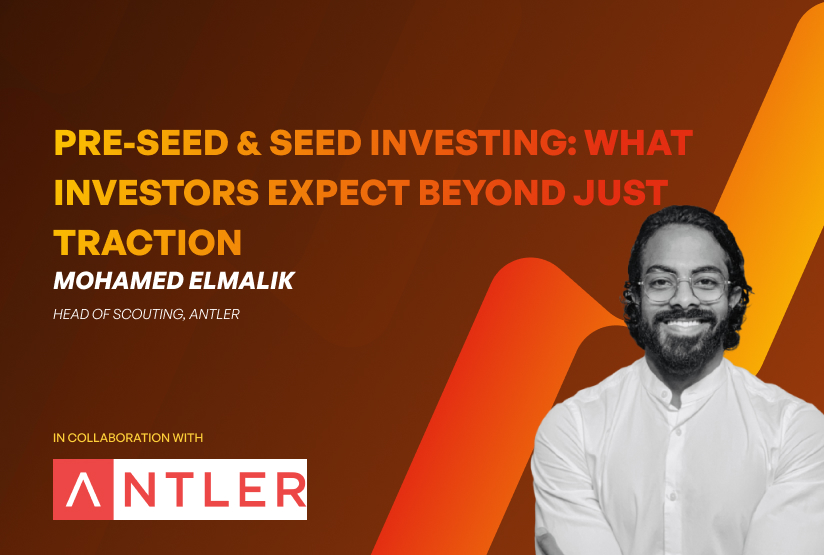
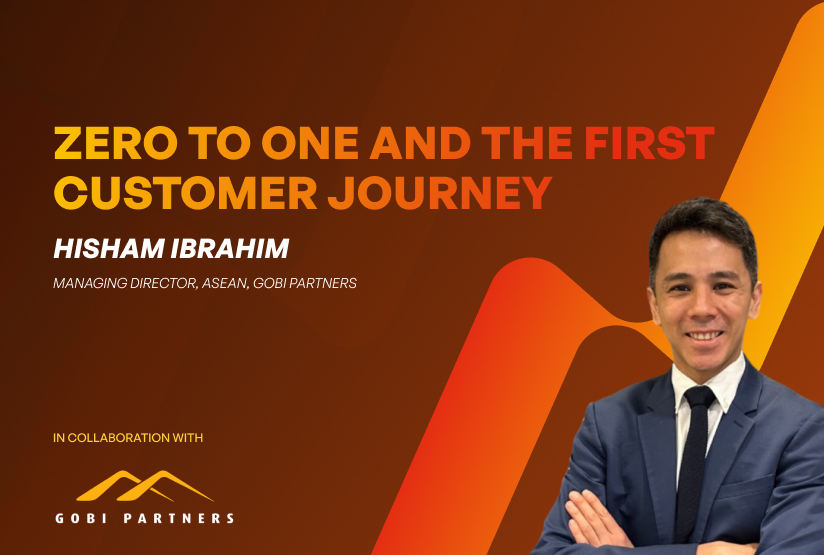



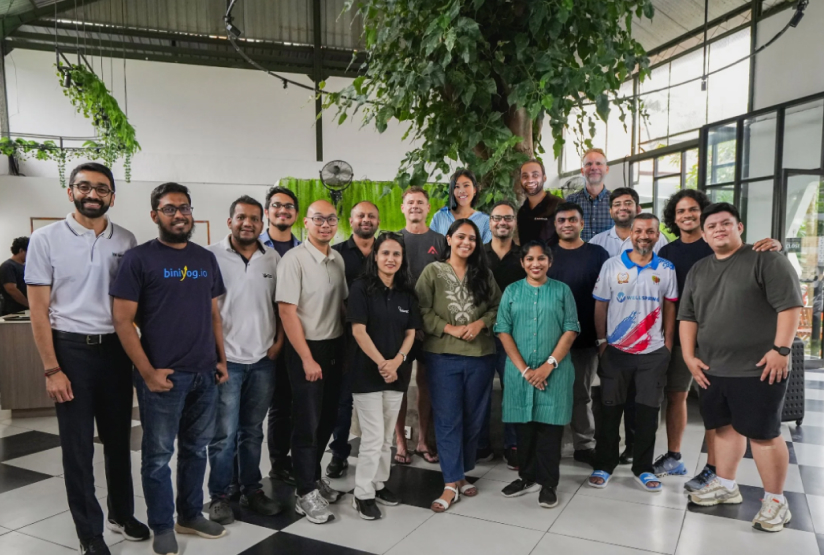
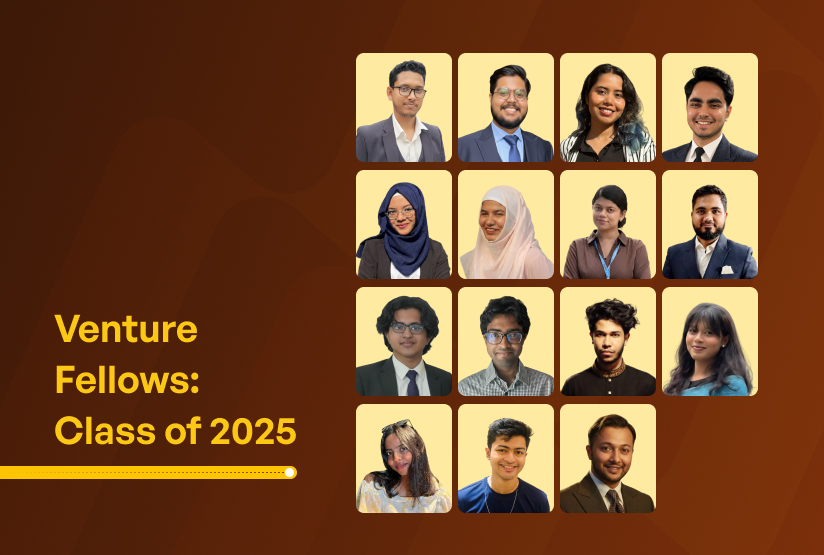


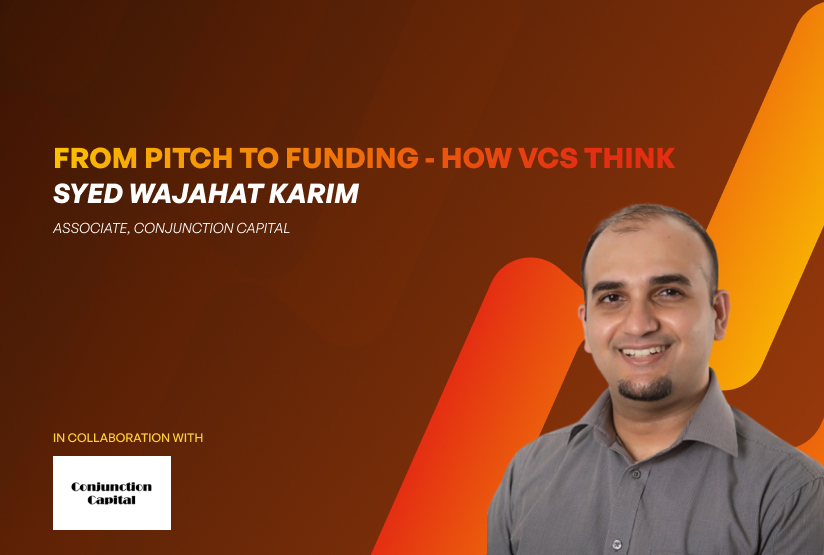







.jpg)
.jpg)





.jpeg)



.jpg)


















.jpg)


.jpg)
.jpg)

.jpg)
.jpg)



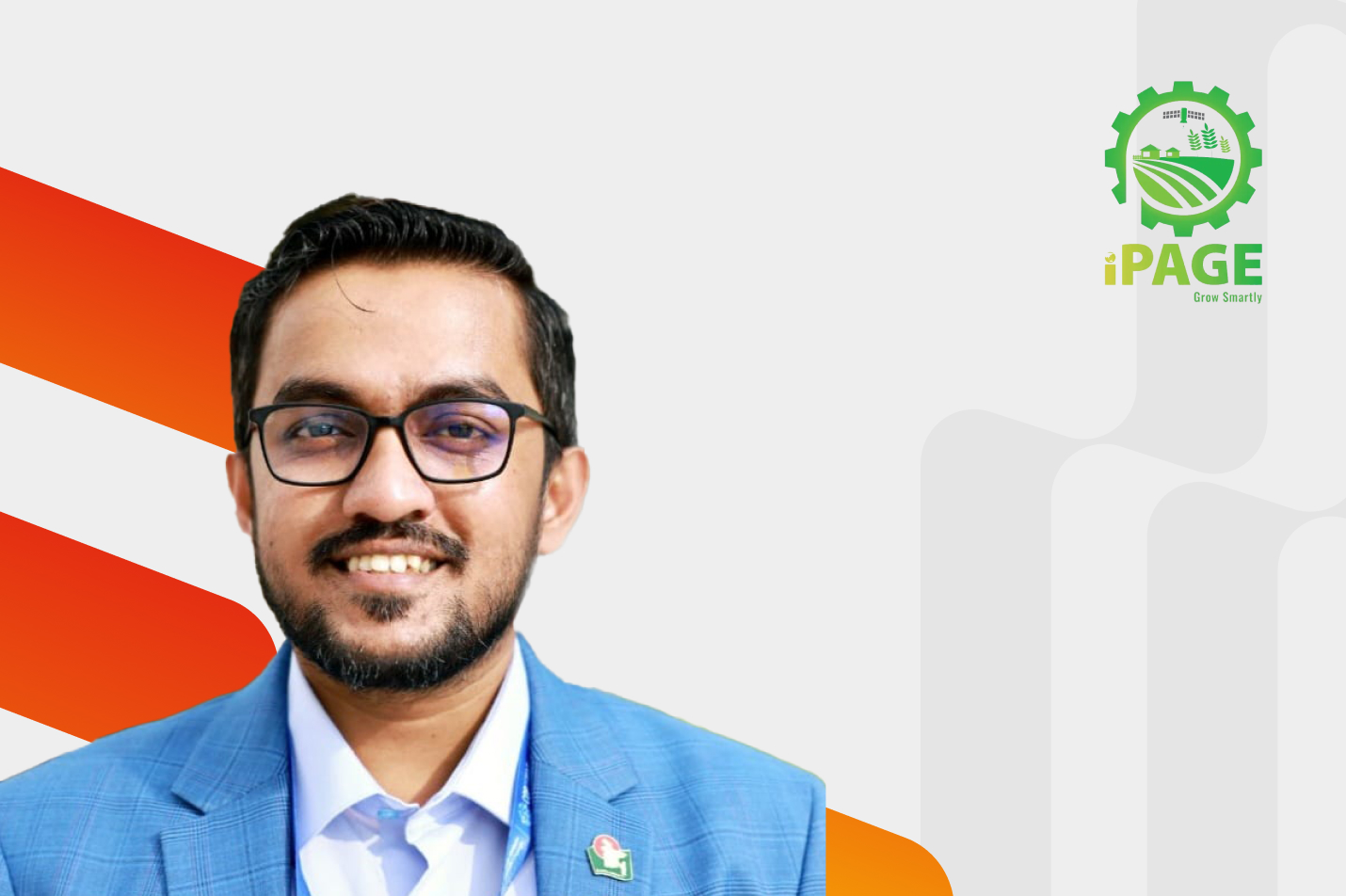














.jpeg)












..jpg)
..jpg)



.jpg)




